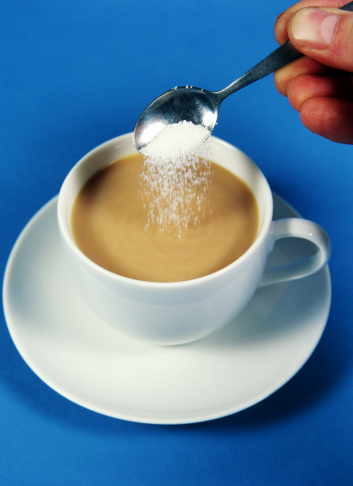7 Signs You’re Consuming Too Much Sugar
Are you consuming too much sugar? The American Heart Association claims that men should consume no more than 9 teaspoons per day (37.5 grams), whilst women should consume no more than 6 teaspoons (25 grams).
Unfortunately, this amount can be difficult to judge, given that sugar is hidden in many foods. On top of this, this figure does not apply to everyone – those that exercise regularly may be able to get away with consuming more sugar without too much harm on the body, as this sugar can be a useful source of energy.
Because of this, you’re much better off looking for other physical signs that you may be consuming too much sugar. Here are just seven signs that could be proof that you’re consuming too much sugar.
You’ve been diagnosed with diabetes
Diabetes is caused by high blood sugar levels and can result in symptoms such as excessive thirst, frequent urination, nausea, blurry vision and fatigue. Whilst it can be genetic, the most popular type of diabetes (type 2) is usually directly the result of consuming too much sugar over a prolonged time.
Most people that are diagnosed with diabetes are told by their doctor to lower their sugar intake. Ignoring this advice can cause your blood sugar levels to get worse, which could even result in a diabetic coma or in extreme cases death. There are lots of guides online that can help you to control your diet when dealing with diabetes – some people have even cured themselves of diabetes simply through a low-sugar diet and exercise.
Image Source. Licensed under Creative Commons.
You keep getting cavities
Tooth decay is the result of bacteria building up on our teeth. Frequent and thorough brushing may be enough to prevent this bacteria causing tooth decay. However, consuming lots of sugar often makes this harder – sugar that gets coated on teeth creates the perfect breeding ground for bacteria and is the main cause of cavities.
A dentist may be able to recommend the best course of action for reducing tooth decay – the likes of this website offers information on the types of dental treatments available. Of course, cutting down on sugar and keeping up a good brushing regime will also be needed to prevent future cavities. Soft drinks are usually the biggest culprit when it comes to tooth decay.
You’re gaining weight
Sugar can also lead to weight gain. This is because sugar is full of empty calories that the body doesn’t know what to do with. If you’re not exercising and burning these calories as energy, your body will just store them as excess fat.
Other foods can also cause weight gain too such as fried foods and processed foods. These could also be worth considering on top of your sugar intake. Try exercising and lowering your sugar intake and see what impact it has on your weight.
You keep getting spots
An outbreak of spots could also be due to overconsumption of sugar. This has to do with the release of insulin – the hormone that regulates our blood sugar levels. Every time we consume a large amount of sugar, our pancreas releases insulin to try and get rid of some of this sugar from our blood (this function can stop working, which is when diabetes develops). However, overproduction of insulin can lead to unnecessary inflammation around the body – a common example being spots and acne on the skin.
Spots can also develop if you don’t regularly wash your face. However, if you’ve got a good personal hygiene routine and are still developing lots of spots, overconsumption of sugar could likely be the cause.
You constantly feel tired
Sugar is a source of energy and so it may seem odd to suggest that chronic fatigue is the result of eating too much sugar. The reason sugar addiction can cause people to become overly tired is because for every sugar high there is always a comedown – whilst you may feel perky a few minutes after feasting on a bag of sweets, you could feel awful a couple hours after.
Fatigue can be the result of all manner of factors such as lack of sleep, stress or a generally poor diet. Sugar however could be a major contributor and cutting down could make your feel more awake – you may not get the benefit of the sugar highs, but you also won’t get the negative side effect of the sugar comedowns.
You can’t taste things as well as you once could
If you’ve been noticing that food doesn’t taste as exciting any more, it could be because you’re battering your taste buds with sugar. Consuming lots of sugar eventually desensitises your tastebuds to the joyous sensation that sugar once brought. This leads to a vicious cycle – many people end up consuming more sugar just to get the sweet fix they once received. Meanwhile other flavours can also start to become bland in comparison.
The same thing can happen when eating too much salt or too much spice too many sour fruits. If you’ve noticed your sense of taste getting worse, consider whether you’ve been overdoing these other strong flavours too. A loss of taste could also be due to other factors such as smoking or drinking too much alcohol – both of which can damage the taste receptors.
You constantly crave sugar
A great way to find out if you’re consuming too much sugar is to simply try going a day without it. If you cannot manage this, it could be a sign that you’ve developed strong sugar cravings. Some people can’t even go a few hours without consuming something sweet. This is when you know you’re addicted and when you’re most likely consuming too much sugar.
Beating sugar cravings isn’t easy and requires willpower – it’s essentially like overcoming drug addiction. There are many guides online and counselling services that can help.

